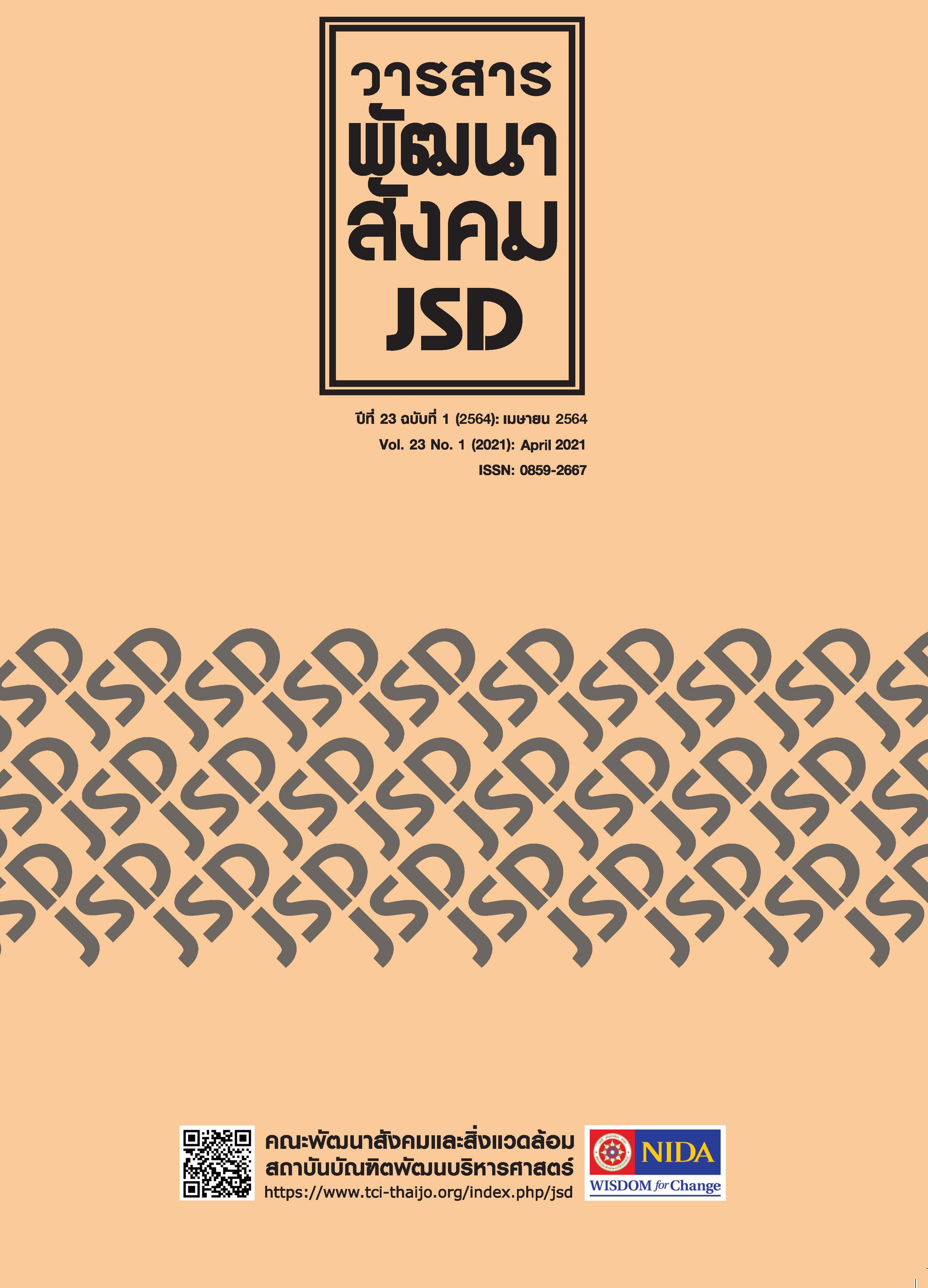A Comparison of Psychological Characteristics of University Students and Causal Relationship of Factors to Affect Online Gaming on Smartphones Behavior in Thailand.
Main Article Content
Abstract
Article Details

This work is licensed under a Creative Commons Attribution-NonCommercial-NoDerivatives 4.0 International License.
References
Barnett, J., & Coulson, M. (2010). Virtually real: a psychological perspective on massively multiplayer online games. Review of General Psychology, 14 (2), 167-179.
Ball, L., & Chandler, M.J. (1989). Identity formation in suicidal and nonsuicidal youth: the role of self-continuity. Dev Psychopathology, 1(3), 257-275.
Brand, M., Young, K.S., Laier, C., Wolfling, K. & Potenza, M.N. (2016). Integrating psychological and neurobiological considerations regarding the development and maintenance of specific Internet-use disorders: An interaction of person-affect-cognition-execution (I-PACE) model. Neuroscience & Biobehavioral Reviews, 71(2016), 252-266.
Burcak, A.D.M. (2012). The Influence of Internal Audit Program on the Use of Controlled Learned Strength and Defense Mechanisms by Ergens. (PhD Thesis). Dokuz Eylül University, Institute of Educational Sciences, İzmir.
Chou, C., & Hsiao, M. C. (2000). Internet Addiction, Usage, Gratification, and Pleasure Experience: The Taiwan College Students’ Case. Computers & Education, 35(1), 65-80.
Demir, İ., Ozkoklu, D.P., & Turgut, B.A. (2015). The Role of Locus Control and Life Satisfaction in Predicting Problematic Internet Use among Adolescents. Mersin University Journal of The Faculty of Education, 11, 720-31.
Erik H. Erikson. (1968). Identity, youth and crisis. New York: W. W. Norton Company.
Griffiths, M. (1998). Internet Addiction: Does it Really Exist. In J. Gackenbach, Psychology and the Internet: intrapersonal, interpersonal, and transpersonal implications. New York: Academic Press.
Griffiths. (2005). A Components Model of Addiction within a Biopsychosocial framework. Journal of Substance Use, 10(4), 122-123.
Hernandez J.T & Diclemente R.J. (1992). Self-control and ego identity development as predictors of unprotected sex in late adolescent males. Journal of adolescence, 15(4), 437-447.
HO SMY & LEE TMC. (2001). Computer usage and its relationship with adolescent lifestyle in Hong Kong. Journal of Adolescent Health, 29(4), 258-266.
Kandell, J. J. (1998). Internet addiction on campus: The vulnerability of college students. CyberPsychology & Behavior, 1(1), 11-17. https://doi.org/10.1089/cpb.1998.1.11
Kim, E. Namkoog. K, Ku, T., & Kim, S. (2008). The Relationship between Online Game Addiction and Aggression, Self-Control and Narcissistic Personality Traits. European Psychiatry, 23(3), 212-218.
Kuan-Ying H, Ray C. H, Yi-Hsin Y, Kun-Hua L & Cheng-Fang Y. (2019). Relationship between Self-Identity Confusion and Internet Addiction among College Students: The Mediating Effects of Psychological Inflexibility and Experiential Avoidance.
Techaniyom, K. (2011). The causal relationship of factors affecting online gaming addiction in the high secondary school students in Bangkok (In Thai). (Master's thesis). National Institute of Development Administration, Bangkok.
Lemenager, T., Homann, S., Dieter, J., Reinhard, I., Mann, K. & Kiefer, F. (2018). The links between healthy, problematic, and addicted Internet use regarding comorbidities and self-concept-related characteristics. Journal of behavioral addictions, 7(1), 31-43.
Liu, M., & Peng, W. (2009). Cognitive and psychological predictors of the negative outcomes associated with playing mogs (massively multiplayer online games). Computers in Human Behavior, 25(6), 1306-1311.
Marcia, J.E. (1966). Development and Validdation of Ego-Identity Status. Journal of Personality and Social Psychology, 3(5), 551-558.
Panthumnanawin, D. (1981). Behavioral Science Volume 2 Psychology, Ethics and Educational Psychology (In Thai). Bangkok: Thai Wattana Panich.
Said, L. (2006). The Influences of Cognitive, Experientail and Habitual Factor in Online Game Playing. (Doctoral dissertation). The University of Western Australia.
Schwartz, SJ. Beyers, W. Luyckx, K. Soenens, B. Zamboanga, BL. Forthun, LF., et al. (2011). Examining the light and dark sides of emerging adults' identity: a study of identity status differences in positive and negative psychosocial functioning. J Youth Adolesc, 40, 839-859.
Serafini, T.E., & Adams, G.R. (2002). Functions of identity: Scale construction and validity. Identity: An International Journal of Theory and Research, 2(4), 361-389.
Tavolacci, M.P., Ladner, J., Grigioni, S., Richard, L., Villet, H. & Dechelotte, P. (2013). Prevalence and association of perceived stress, substance use and behavioral addictions: A cross-sectional study among university students in France, 2009-2011. BMC Public Health, 13, 724.
Tyrer, R. (2008). Addiction and Massively Multiplayer Online Role-Playing Games (MMORPGs): AN In-Depth Study of Key Aspect. BCs. University of Salford.
Waterman, A.S. (1988). Identity Status Theory and Erikson’s Theory: Communalities and Difference. Development Review, 8(2), 185-208.
West, R. (2006). Theory of Addiction. Oxford: Blackwell Publishing.
YANG SC & TUNG C-J. (2007). Comparison of internet addicts and non-addicts in Taiwanese high school. Computers in Human Behavior, 23(1), 79-96.
YOUNG, K. (2010). Understanding Gaming Addiction. Center for Internet Addiction Recovery, Bradford: PA, 1-30.
Woog, K. (2006). Computer Gaming Addiction in Adolescents and Young Adults, Solutions for Moderating and Motivating for Success.12-29. Retrieved August 18, 2019 from http://www.wooglabs.com/gamingaddiction.pdf.
World Health Organization. (2018). Mental health atlas 2011. Geneva: World Health Organization.


